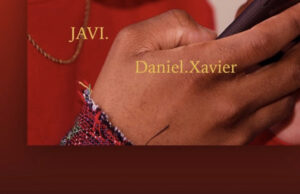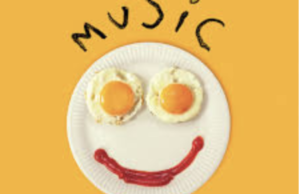If you’re rocking to this, is it too late?
By: Ben Louviere
My nightly ritual began as I situated myself at my bedroom desk and opened Spotify, the music streaming platform with which I’ve indulged in countless sonic escapades. With a blank document opened on my screen, I prepared to delve into my opinions on the unexpected release from Toronto hip-hop artist, Drake — If You’re Reading This It’s Too Late. One of the genre’s most polarizing artists — myself not much of a prior fan — I found myself very impressed with the content Drake delivered on this confident LP.
I navigated to the album, intending to let it play as I wrote. Clicking on the intro song, “Legend,” Drake’s lyrics began to flow over the skeletal beat — “Oh my God, Oh my God, If I die, I’m a legend.” I began to ponder the idea of legacy. If Drake died tomorrow, what will we think of him and his music in thirty years? His massive cultural relevance as an artist is undeniable. He has been an important figure in music since his first EP, So Far Gone, with the hit single, “Best I Ever Had” in 2009. Drake’s music is of consistently high quality, and his feature verses are nearly always on point — among those, for instance, one of my guilty pleasures on Lil Wayne’s “Right Above It.”
This article is not about Drake, though. My thoughts of musical legacy took an unexpected turn after “Legend.” The song ended, and I anticipated the gunshot sounds that open the following song, “Energy” — one of the hotter tracks on the LP. What came out my speakers, however, was the iconic opening guitar riff of Led Zeppelin’s “Whole Lotta Love.” I’d forgotten to turn off the shuffle feature. With volume blaring, the sound and energy of an era filled my bedroom. I forgot about Drake. I forgot about the article I was going to write and turned the volume up even higher. While infatuated with the sound of Jimmy Page shredding a guitar solo, however, I was struck with a strange realization. I wasn’t around for this music.
I thought of myself — a music loving teenager, sitting at the computer, able to stream nearly any form of music ever made with a few clicks of the mouse. I can listen to anything from Beethoven to Louis Armstrong to Flying Lotus, regardless of the relevant music of my generation. Because of this, I’ve been able to explore my musical taste to encompass a plethora of styles — among them, rock and roll.
I thought of the middle-aged folks — the dads with a box of CD’s and worn out Metallica T-shirts in the basement. I thought of the years of rock music which I particularly enjoy and revere — Jimi Hendrix and The Doors of the sixties, Led Zeppelin and AC/DC of the seventies, Guns N’ Roses and Van Halen of the eighties, for example. It may be safe to consider these the golden ages of rock and roll. I wasn’t around for this, but those middle-aged folks were.
I thought again of those middle-aged folks — those who lived before Spotify. Those folks who banged their heads with thousands of others as Hendrix, Page or Van Halen melted their faces live in front of them on stage. Did those people know, as they attended the concerts and bought the CDs of the rock and roll age, that those same songs would become legendary to a future listener like me? That poses a series of pertinent follow up questions. Does this mean that rock is dead? And if so, will the music of today die and become legendary to listeners of the future?
Today, rock and roll is not leading the way. Instead, it seems to hang suspended in its time. Those who enjoy the genre are left in a state of appreciative reflection on its glory days instead of participating in the enthralling ride as the golden age unfolded. However, I do believe that rock is not dead. The new, exciting and cutting edge of the golden age have become “classic rock.” That in itself makes any new music of similar style sound like nothing but a mere imitation or tribute to the classics. Other styles of music began to lead the way, but rock did not die with its lack of mainstream relevance. Instead, it grew.
Alongside the hard rock of the golden age, punk rock and progressive rock flourished as well. From here, stylistic branches of rock spread prolifically over the years despite the rise of other pop-music styles which took over in cultural prevalence. Rock has innovated and evolved, as all musical styles must, in exciting ways — becoming an array of styles much too long and varied to list. Amidst those styles, indie rock was born and has proven capable of attaining mainstream success. Pioneered by bands like Joy Division, Sonic Youth, Dinosaur Jr. and R.E.M., indie rock has produced some terrific music. The genre includes one of my all-time favorite records, In the Aeroplane Over the Sea by Neutral Milk Hotel — released in 1998, the infamous album has garnered somewhat of a cult following. Currently relevant indie music includes bands such as Arctic Monkeys, Of Monsters And Men, Alt-J, Foster The People and many others that are certainly worth a listen.
Today, alternative rock includes a variance of styles that many may find appreciation for. Hendrix fans may enjoy the psychedelic guitar riffs of Tame Impala. Bob Dylan enthusiasts could find an enjoyable congruence with The War On Drugs. Fans of strictly more “true” sounding rock and roll may appreciate The Black Keys or Queens Of The Stone Age, the latter releasing one of my favorite albums of 2013, …Like Clockwork.
However, with personal suggestions aside, I must refer back to Drake — “Oh my God, Oh my God, If I die, I’m a legend.” Is this true? I am left to grapple with the idea of legacy. What will the artistry of modern culture mean thirty years from now? If Drake were to die — and the music of today were to die — how will we reflect on it? Unfortunately, I have no crystal ball nor time machine. Only time will tell. I can only hope that those in the future can be exhilarated by the guitar solos of rock’s golden age at full volume — able to appreciate and fall in love with the art of prior generations. This is not to detract from the art of today, however. I certainly believe that we are in the midst of a revolutionary artistic golden age, one brought about by the Internet and the new ideas of our generation. I believe that many years from now, a teenager will accidentally listen to If You’re Reading This It’s Too Late and experience the expression of a generation — a humbling escapade that only music can offer.









You must be logged in to post a comment Login